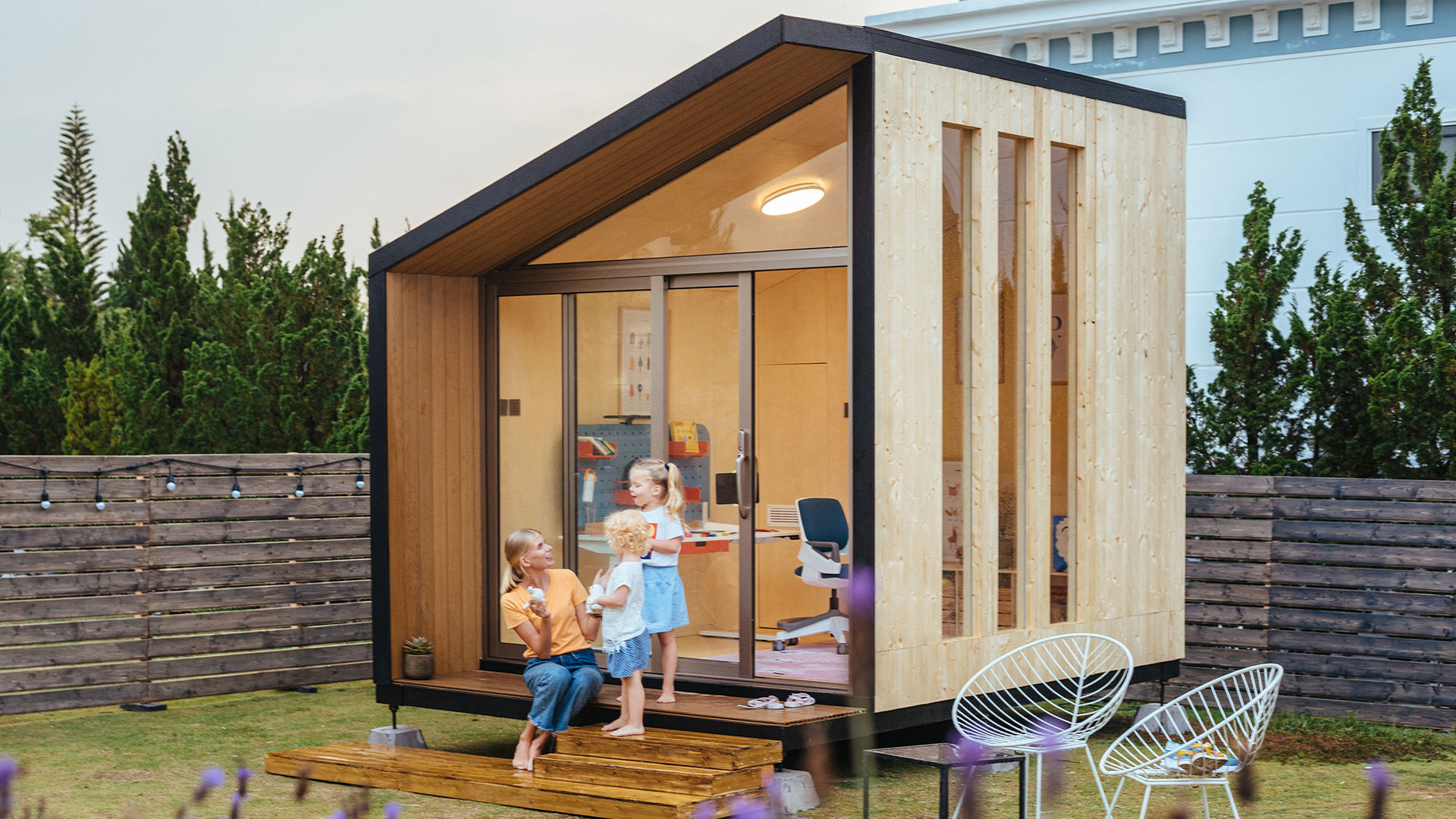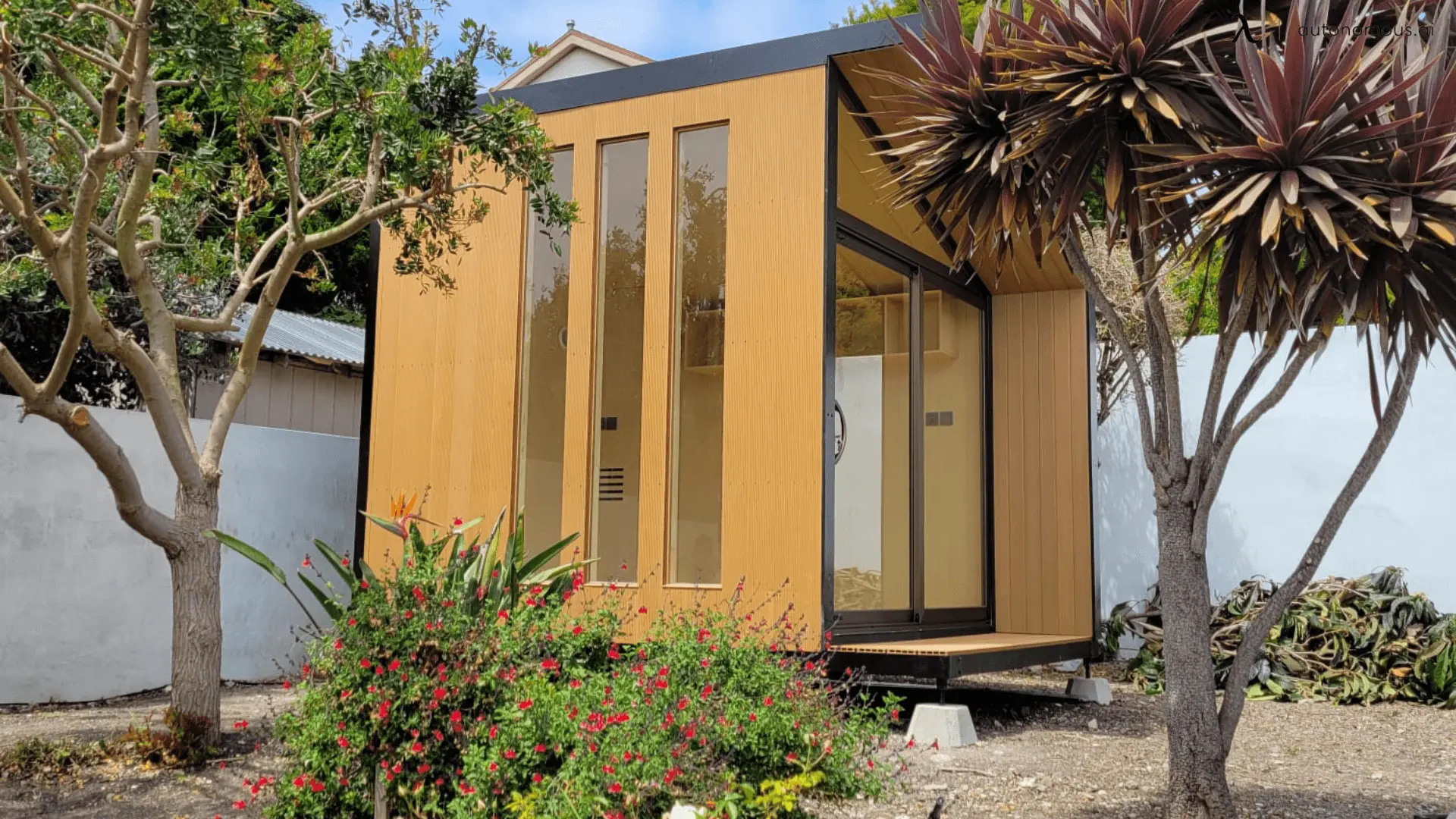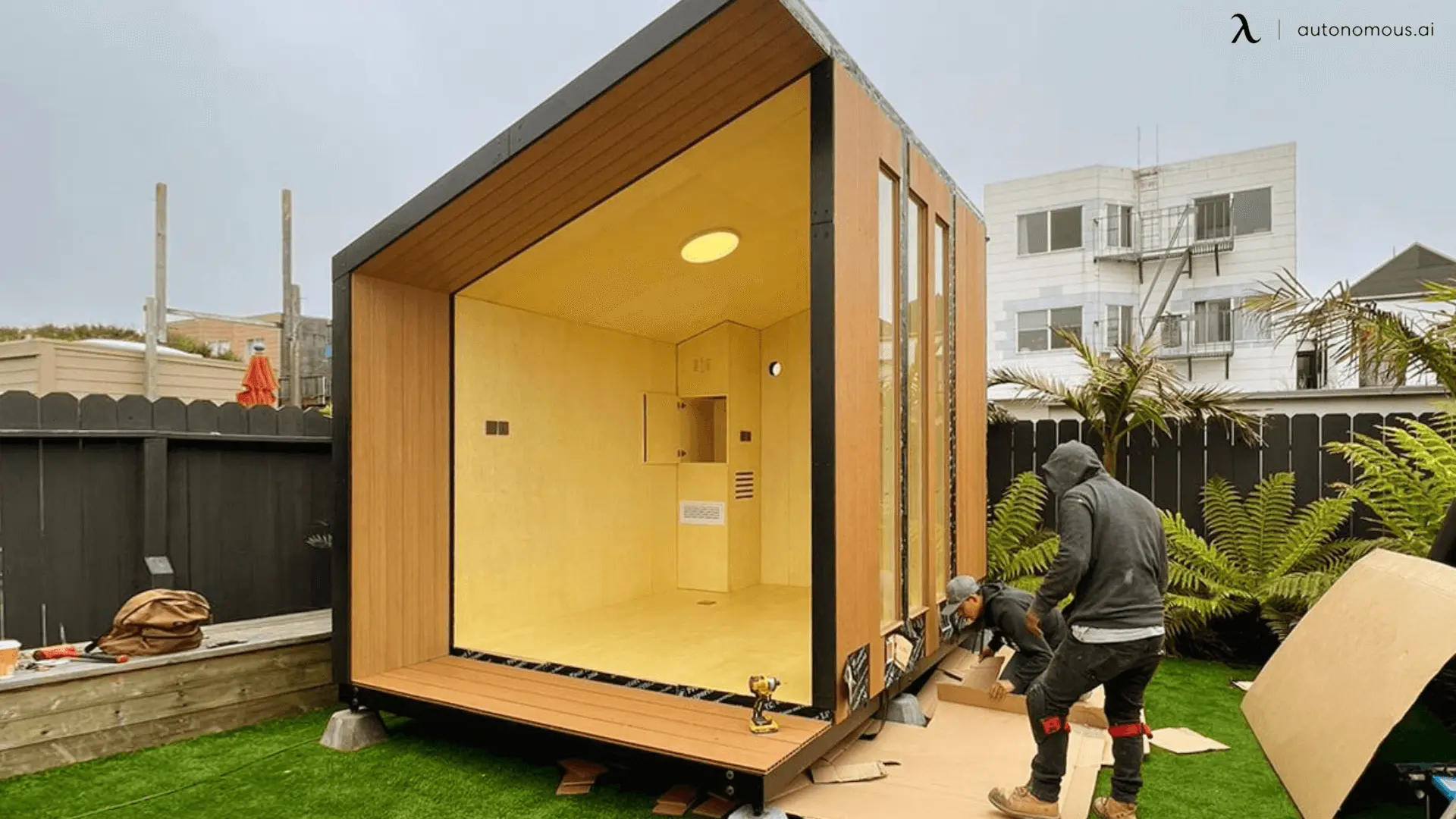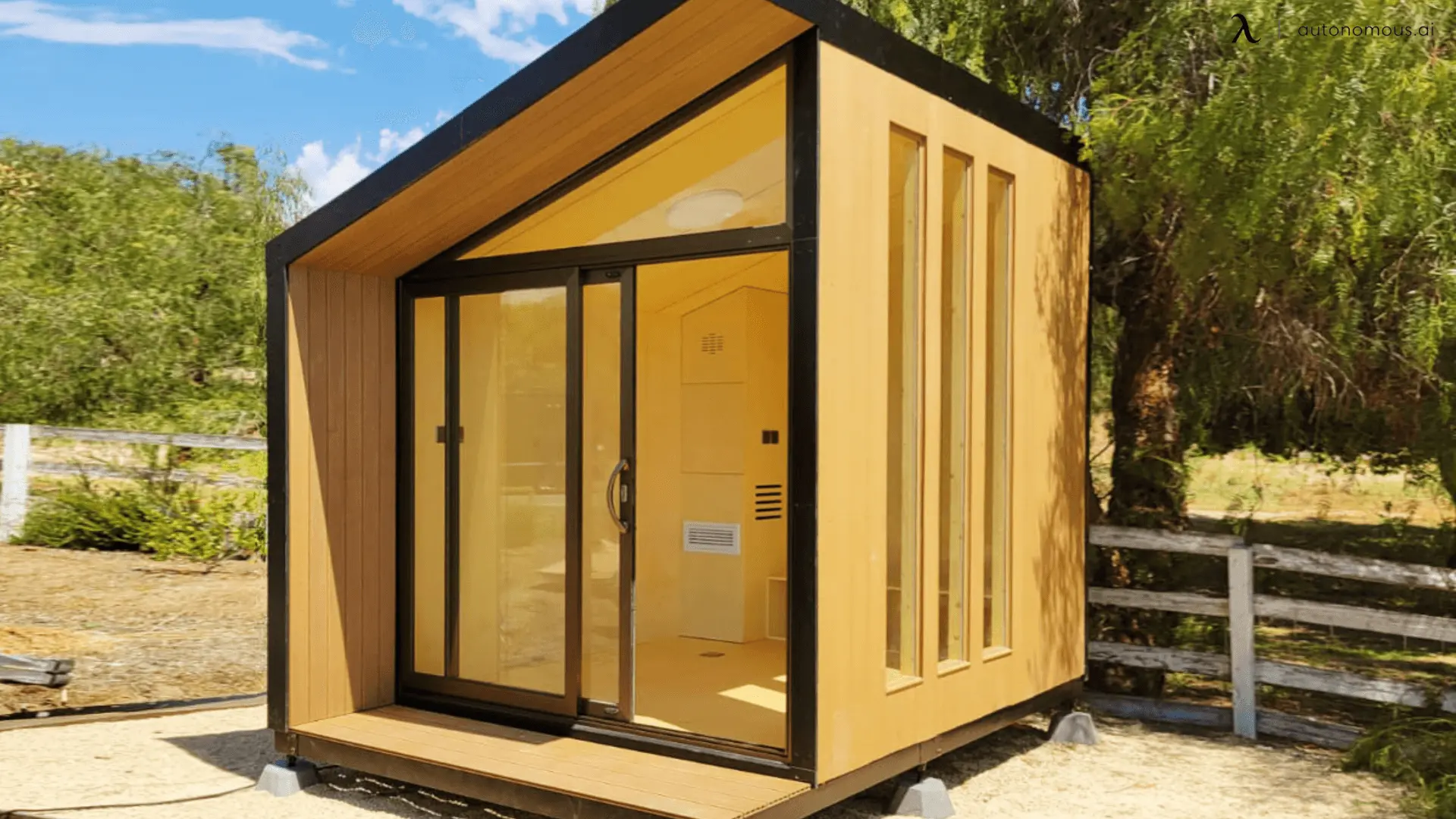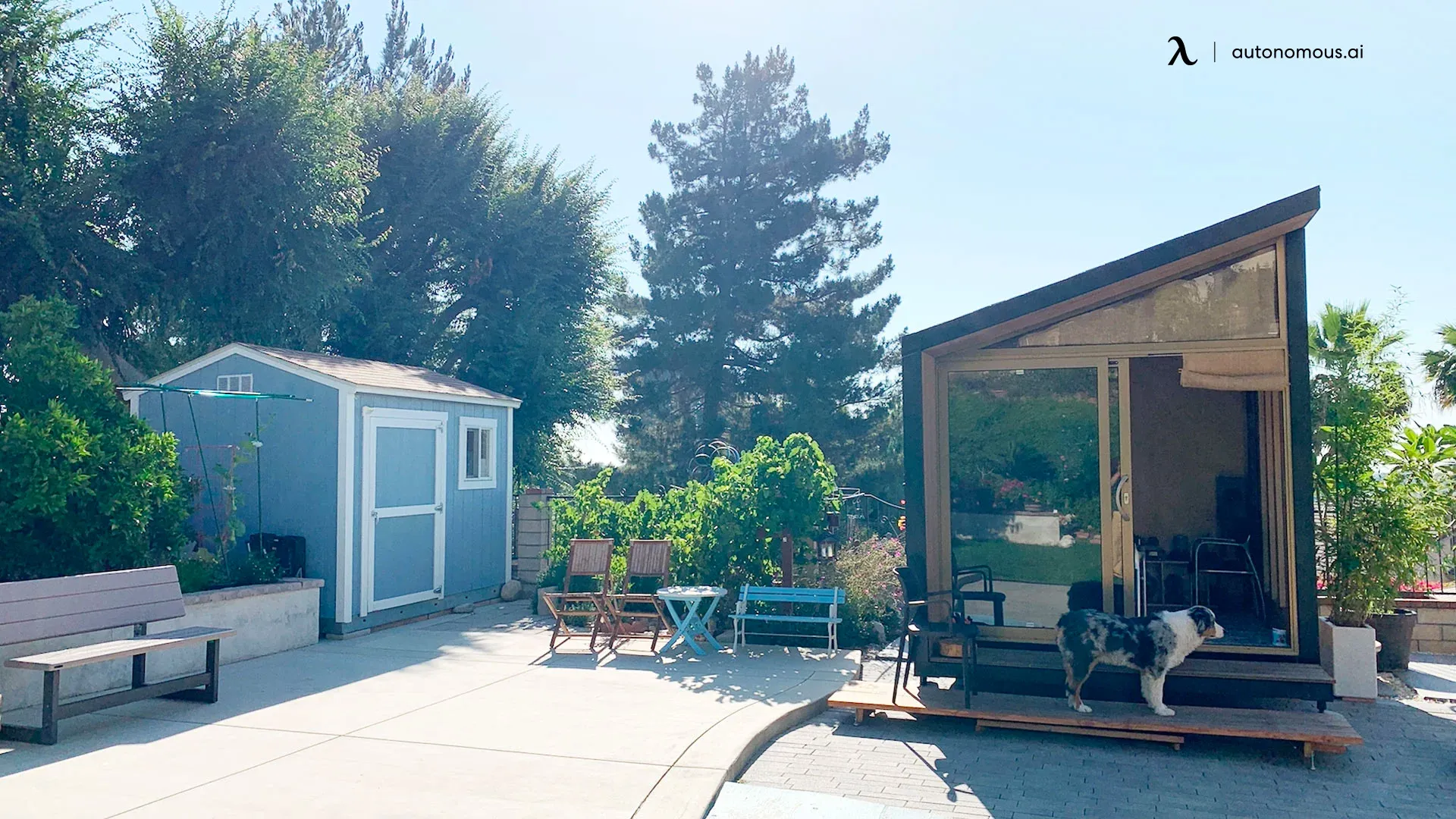
How Many Sheds Can I Have On My Property?
Table of Contents
Installing a new shed on your property is the smartest way to adorn your living space with many beneficial features. It can serve various purposes while keeping your property's value intact and increasing it by several folds too. An office shed can be where you work from home and enjoy the peace of a separate home office space. A modern shed can serve as a fully functional guest house or a rental property to generate passive income. A gym shed can be a suitable in-house workout space where you can conduct proper classes and earn money. In simpler terms, there is a lot you can do with a man shed (other than storage) in your backyard.
So if that's the huge benefit of having a shed in your backyard, why not have as many as possible? But the real trouble begins when you start to wonder how many sheds can I have on my property without troubling the local laws. Can I have 2 sheds on my property, or only 1 is allowed?
These questions must be considered before you start your shed-building project on the property. In this article, we will cover all you need to know to answer the question of how many sheds can I have on my property in California or other regions?
How Many Sheds Can I Have in My Backyard?
How many sheds are allowed in a backyard depends on several factors. Most of all, it depends on the zoning laws and regional restrictions the government sets. It also depends on the size of the shed you are planning to build, the space available in your backyard, and the intended use of the shed. If you wish to know how many sheds are suitable for your backyard, keep reading to find out all the variables on which the shed construction and number of sheds depend. Also, if you are wondering if you can live in a shed on your own property, read below to find all the answers!
Understanding the Shed Permit Rules
Sheds are extra structures with the value of living space on a property; hence they have proper permits, rules, and regulations that one must follow to make a shed approved by the local government. For starters, shed construction needs a permit. It comes with certain guidelines to be followed. You will also need an inspection of the property before getting a shed approved for living purposes. For a shed designed for storage needs, the permit rules will vary.
Number of Sheds
There is no fixed rule for the number of sheds you can have on your property globally. Thus you need to consider the local laws set by the country or the city to know the number of sheds allowed in your region. Two factors can help you find the number of sheds that can be built on your property.
The laws governing sheds in Florida differ depending on the jurisdiction. You could have as many sheds as you like in one more rural county but just one in another that is more populous. Before you begin the shed construction, check your local legislation.
Your HOA status - If you reside in a community with an HOA (homeowners association), the HOA manual probably has a rule addressing sheds. To prevent paying fines, refer to that before putting anything on your property. Your HOA handbook will likely specify the maximum number of sheds you may have if you can construct them on your property.
Shed Size
The number of shed bars and structures, as well as the size of individual sheds, depend on the overall size of the yard. Also, the shed size depends on the intended use of the shed in the backyard. For instance, a shed used for storage needs varies greatly from the shed used for other purposes such as living, office space, or a kid's playroom.
The rule of law states that even after completing the construction of the shed, you must have free space in the backyard to move around and proceed with other regular outdoor activities. Consider your shed location after you are certain the sheds you selected will fit. There is no other option except to circumvent the requirements regarding the distance a shed must be from the property borders.
Intended Use
It is possible that out of two sheds, only one requires big construction expenses while the other is a cheaper build. However, both the sheds then equally serve their purpose rightfully. Most people opt for multiple sheds on a property because of the different use they are planning with the shed. So the way you intend to use your shed will also affect the preparations needed in the construction and planning phase.
For instance, a man cave shed with living facilities will require you to adhere to the living law and standards and ask you to get it approved by the inspection team. A shed for living needs must offer facilities for water, electricity, and connections. On the other hand, a storage shed doesn't have to comply with any plumbing or electrical needs and hence costs much cheaper to the property owner.
Condition of the Yard
Other than space, budget, and intended use, another factor that will greatly affect the number of sheds in your backyard is the yard's condition. Building multiple sheds in a sloped yard might be unsafe since the foundations might not be sturdy enough. Soil erosion, which is more likely to occur when it rains, can eventually weaken the shed's foundation, posing a major threat to its ability to support human habitation.
The bottom of a sloping yard is not the best place to build several sheds if you have other plans. The drainage may end up being tampered with. So especially for people living in areas of heavy rain and snow, it becomes even more important to apply for the permit and only build sheds that comply with the firm safety and foundation standards.
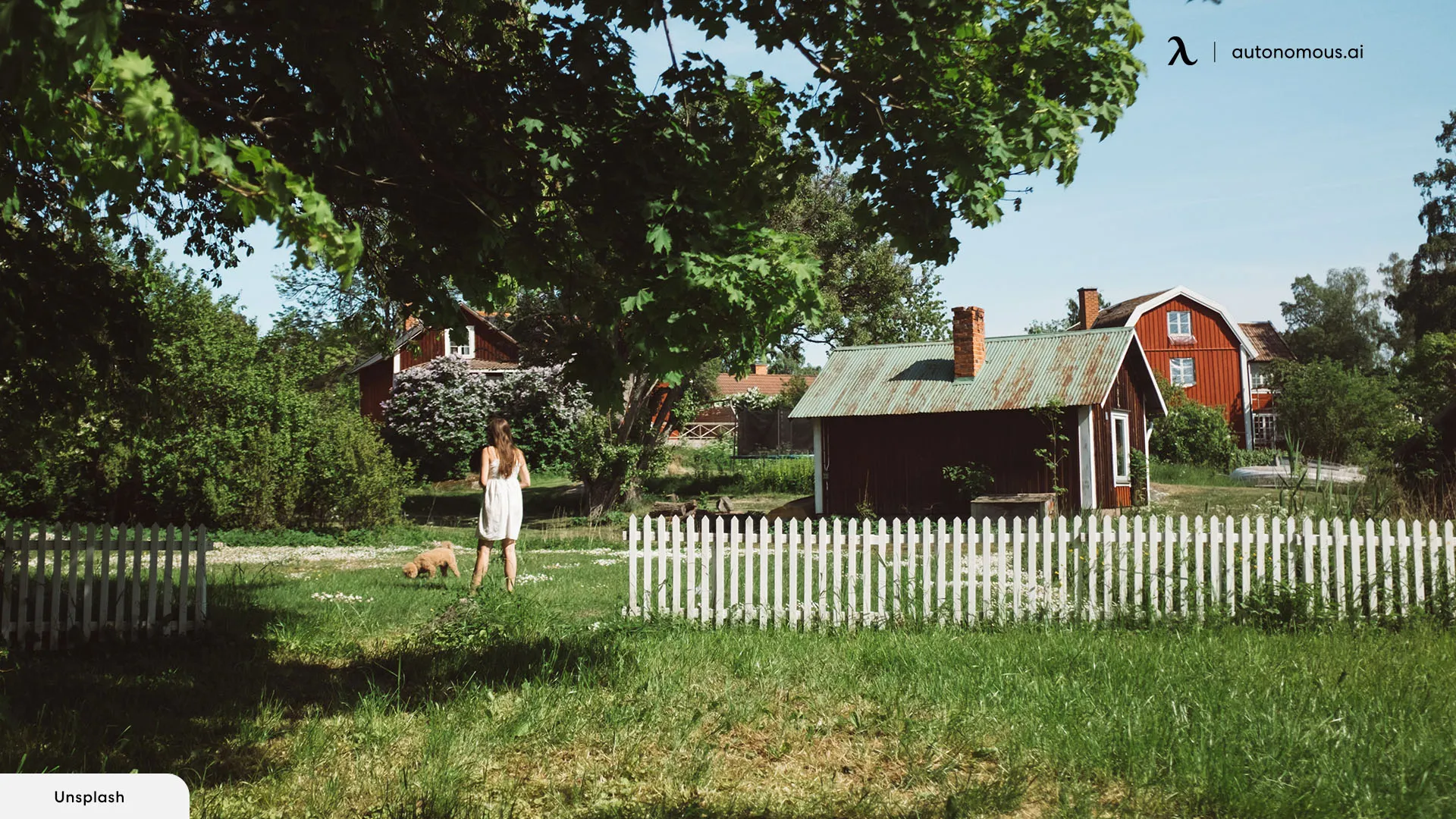
States and Regions with Specific Guidelines
While it's important to check the specific regulations in your locality, here are some general trends and examples from different regions across the U.S.:
California:
Many cities in California allow more than one shed, but they often have strict size and setback requirements. For instance, in Los Angeles, you can have multiple sheds as long as each does not exceed 120 square feet without a permit, and they meet setback requirements from property lines.
- Texas:
Texas is known for its relatively lenient zoning laws. In rural areas, you may face fewer restrictions, whereas cities like Austin have more detailed regulations, such as limiting the size and requiring permits for sheds over a certain size.
- Florida:
Due to hurricane risks, Florida has stringent building codes to ensure sheds can withstand strong winds. Many counties allow multiple sheds, but they must meet specific structural standards and setback requirements.
- New York:
In New York City, the dense urban environment means strict regulations. Multiple sheds may be allowed, but they must comply with size limitations and placement rules to ensure they do not obstruct fire escape routes or violate building codes.
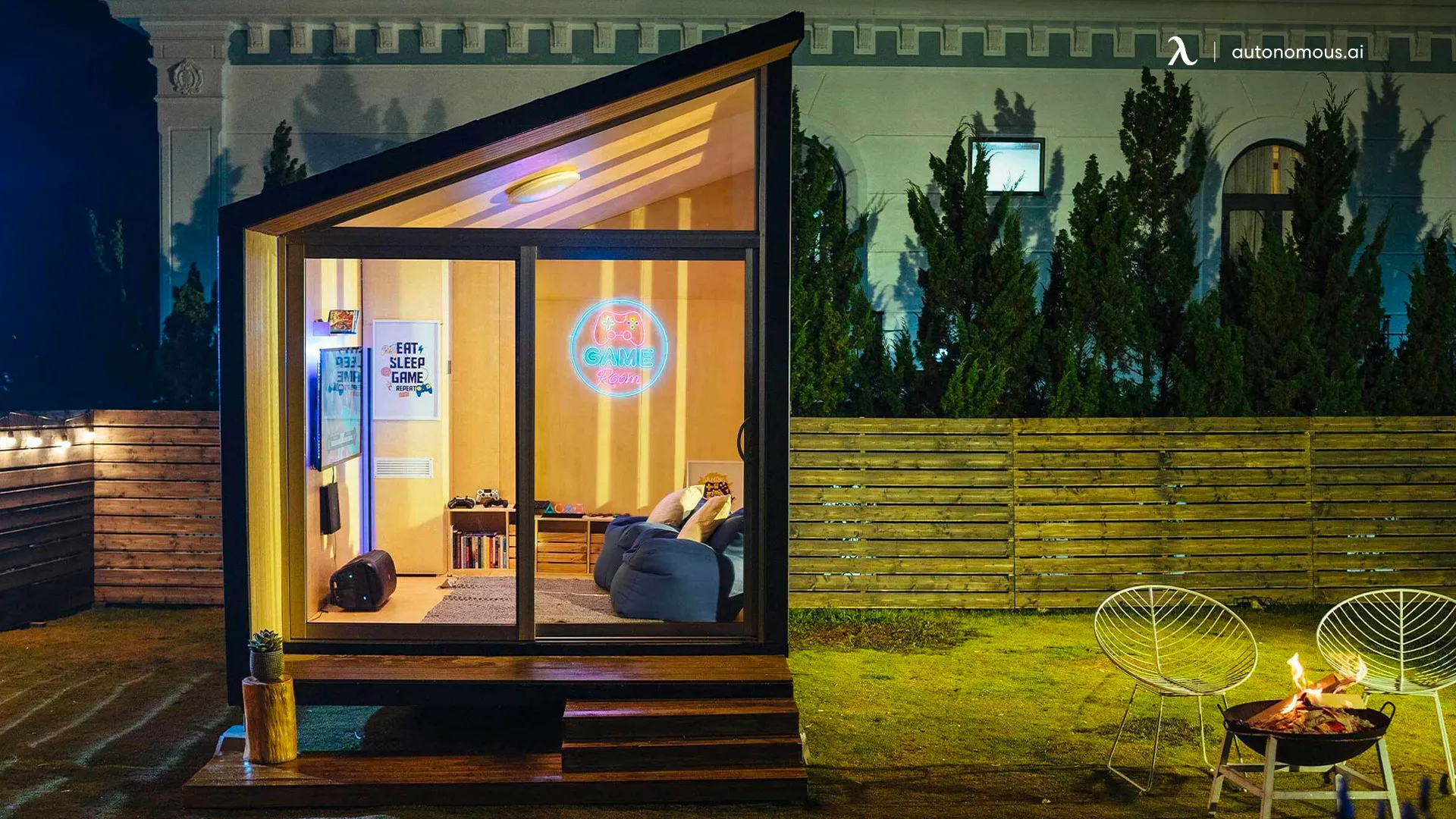
How to Check Your Local Regulations
To determine if you can have two sheds on your property, follow these steps:
Visit Your Local Planning or Building Department:
Most cities and counties have planning or building departments that can provide information on zoning laws and building codes. They often have websites with resources and contact information.
Use Online Resources:
Many municipalities have online zoning maps and code databases. Websites like Municode and your local government’s official site can be helpful.
Contact Your HOA:
If applicable, check your HOA’s website or contact a board member to get a copy of the community guidelines.
Consult a Professional:
Consider hiring a local contractor or zoning consultant who is familiar with the regulations in your area. They can provide valuable insights and help navigate the permitting process if needed.
Having two sheds on your property can be a practical solution for your storage and workspace needs. However, navigating the myriad of regulations requires careful research and planning. By understanding local zoning laws, checking HOA rules, and consulting building codes, you can ensure that your additional shed complies with all regulations, avoiding potential fines and headaches down the road.
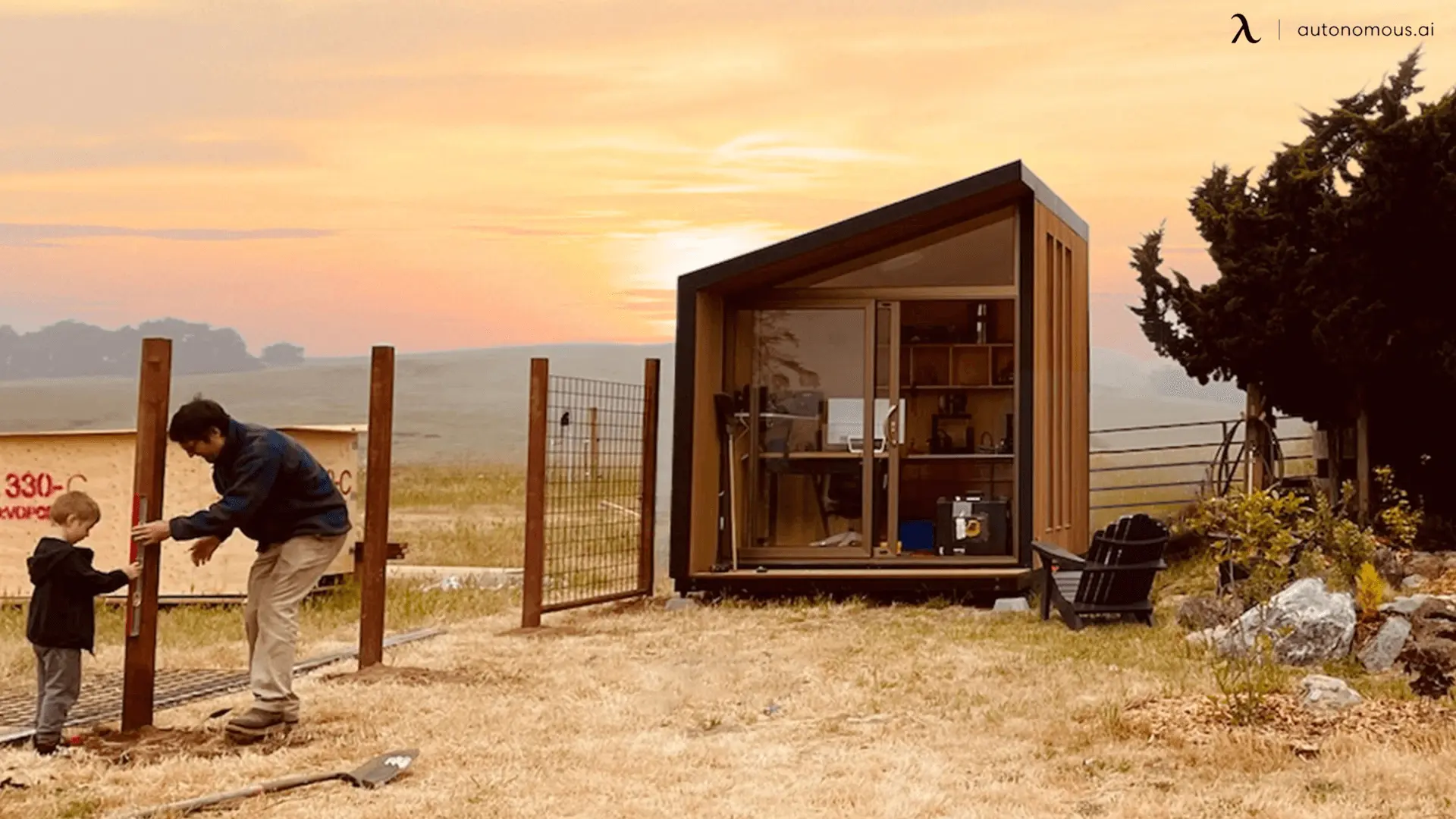
Frequently Asked Questions (FAQs)
1. Can I have two sheds on my property?
Yes, you can generally have two sheds on your property, but it depends on local zoning laws, building codes, and HOA rules. Check with your local planning or building department to understand the specific regulations in your area.
2. Do I need a permit for a second shed?
Permit requirements vary by location. In many places, you may need a permit if the shed exceeds a certain size (often around 120 square feet). Check with your local building department to determine the requirements for your second shed.
3. How close can my sheds be to my property line?
Setback requirements dictate how close your sheds can be to your property line. These requirements vary by location and can range from a few feet to several yards. Consult your local zoning laws for specific setback requirements.
4. Are there size limitations for sheds on my property?
Yes, there are often size limitations for sheds. These limitations can vary based on local regulations and whether the shed requires a permit. Typically, sheds under 120 square feet do not require a permit, but this varies by location.
5. Can I live in one of my sheds?
Living in a shed is generally not allowed unless it is converted into a dwelling that meets local building codes and zoning regulations for residential use. This typically involves meeting requirements for insulation, plumbing, electricity, and safety standards.
6. Do I need to adhere to specific construction standards for my sheds?
Yes, building codes often specify construction standards for sheds, especially in areas prone to extreme weather conditions. These standards can include foundation requirements, materials, and anchoring methods to ensure safety and durability.
7. What if I live in a neighborhood with an HOA?
If you live in a community governed by an HOA, you must adhere to their rules in addition to local regulations. HOAs often have specific guidelines regarding the number, size, appearance, and placement of sheds on your property.
8. Can I use my sheds for commercial purposes?
Using sheds for commercial purposes is subject to local zoning regulations. In residential zones, commercial use of sheds is often restricted or prohibited. Check with your local zoning department to understand the rules for commercial use of sheds on your property.
9. How do I find out my local zoning laws and building codes?
You can find out your local zoning laws and building codes by visiting your local planning or building department's website, using online resources like Municode, or contacting your HOA. You can also consult with a local contractor or zoning consultant for guidance.
10. What should I do if my sheds don't comply with local regulations?
If your sheds don't comply with local regulations, you may need to make modifications to bring them into compliance. This could involve obtaining permits, adjusting the size or placement of the sheds, or meeting specific construction standards. Contact your local planning or building department for advice on how to proceed.
Why Choose Autonomous WorkPod
The Autonomous WorkPod distinguishes itself from other brands by providing a comprehensive setup that includes a foundation and is easy to assemble within 2-3 days. The cost of the WorkPod covers essential elements such as windows, a door, and lifestyle interior features. The table below offers a detailed cost comparison between the WorkPod and other brands, showcasing the superior value and convenience of choosing the WorkPod.
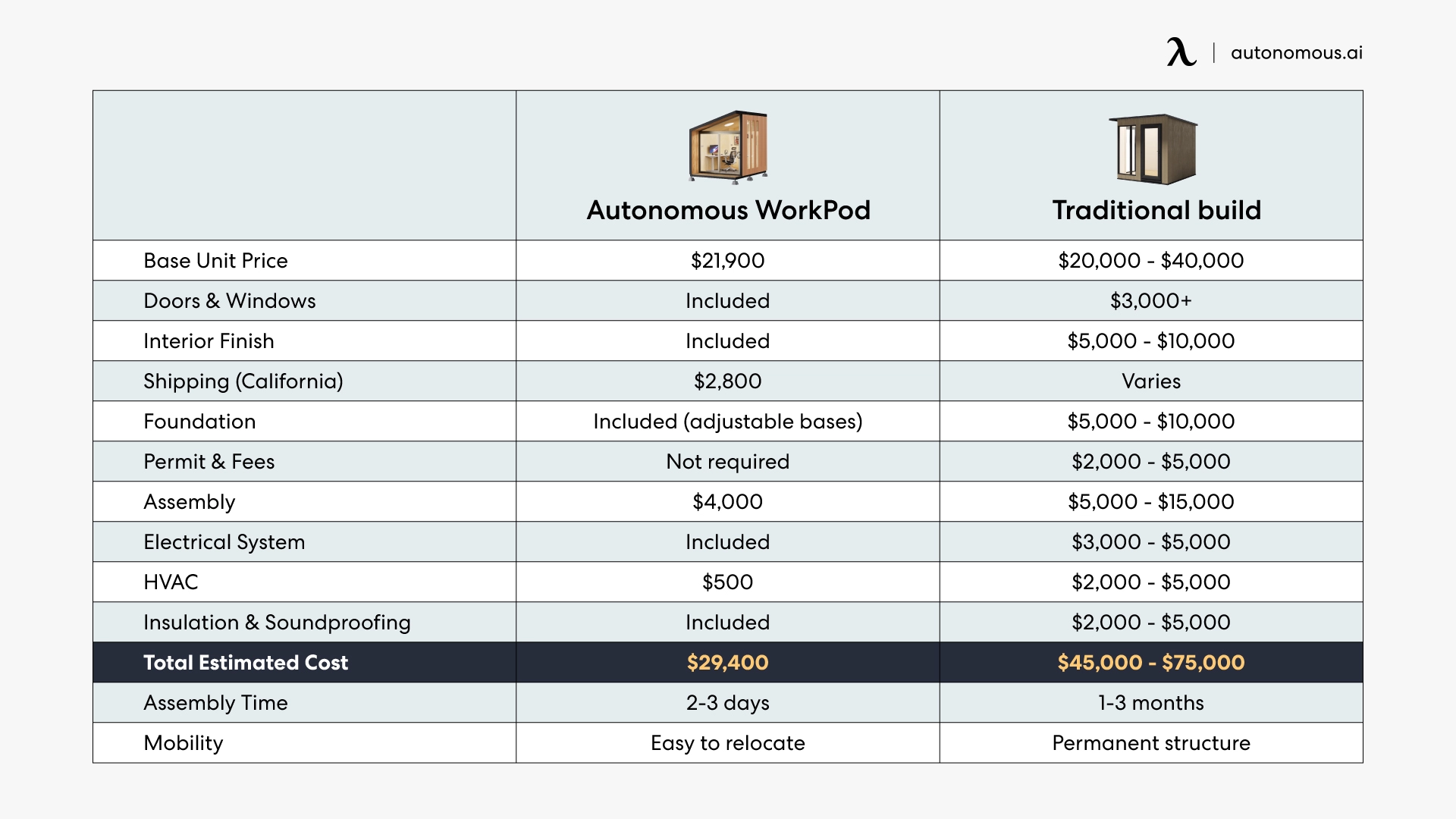
Sum Up
The number of sheds you can have on your property largely depends on local regulations, zoning laws, and the size of your land. It's essential to consult with your local authorities and review any applicable guidelines or restrictions before adding multiple sheds. Understanding these regulations will ensure that your property remains in compliance with the law while allowing you to meet your storage or hobby needs effectively.
Spread the word
.svg)


